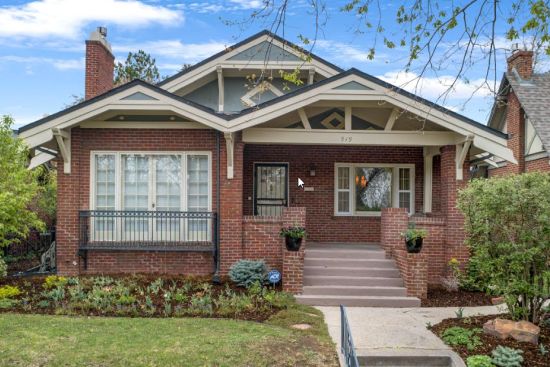Denver, Colorado Gets a Real Estate High Five in Wall Street Journal

So the U.S. is in a recession but Colorado Real Estate gets a high five. I got that important text message to my BlackBerry yesterday from the NY Times while I was sitting in a meeting. I was flabbergasted, couldn’t believe it.
Actually, I’ve been helping real estate brokers in my office and sellers whose properties I have listed weather this recession since about December 2007. Surprise – the official pundits tell us the recession started in…. December 2007.
In today’s Wall Street Journal I found an interesting article, “The Future For Home Prices.” The author, James Hagerty, discusses where home prices will trend in the future, and whether a home should be considered a sound investment. Hagerty’s research suggest that prices will remain flat in some areas, trend down some more in others, and trend a bit up in a few. Overall, we won’t see double digit appreciation again in the near (or probably far) future.
Does this mean that people won’t be buying houses? Is there no longer a market for homes like there’s no longer a market for railroad stocks?
Here’s the piece that many people seem to be missing, something I’ve told my clients for years when they asked me if that property they wanted to offer on would make a “good investment.” Houses are where people live, have families, celebrate and mourn. Houses are not simply an investment like a stock or a bond. If you’re buying your primary residence then you should plan to stay there awhile if possible, if you’re looking to own rental properties make sure they cash flow and are in a strong resale area.
Sure, we all hope not to lose money on our home, and we even want to see a gain. We will see a gain over time, and while it may barely out pace inflation now that the “bubble” has burst, we’ll still have lived there. And if you’ve borrowed on a sensible mortgage that you can afford you’ve actually had the additional benefit of leverage. You’ll receive any upside increase on the total amount of the value of the home while only paying on the amount borrowed. That’s why it’s best not to take out a 100% loan unless your financial adviser sees reason why you should, why it’s best to get that sensible loan that fits your financial picture.
Just like in stocks, the loss isn’t realized until the investment is sold. If your home is worth less than you paid for it, hopefully you can hold on, make the payments and stay there until it comes back. You’re at least living there. Enjoy the laughter around the Christmas tree or Hanukkah bush. Those memories are important and this too, shall pass.
We’re cautiously optimistic here in Denver, and in fact, in today’s WSJ article Denver is mentioned as a city to watch:
“Among metro areas that Mr. Rosen expects to do well in the long run are Albuquerque, N.M.; Boise, Idaho; Salt Lake City; Seattle; Portland, Ore.; Denver and Colorado Springs, Colo. He says those places generally offer “urban vitality” and “easy access to outdoor activities” combined with affordable housing and good job-growth prospects from modern industries, such as biotechnology.”
Denver real estate has been counter cyclical for as long as I’ve lived here – 26 years. We’ll be the canary in the coal mine signaling a recovery. But remember that real estate is local one city’s boom may not be seen in another and one recovery may not signal them all. If you don’t have a mortgage you can afford and you can’t hold out until our Colorado recovery is gaining steam, then talk to the people at the Colorado Foreclosure Hotline. They can be an invaluable resource.



